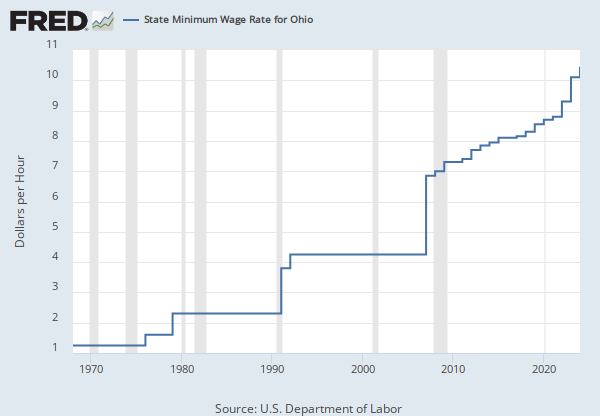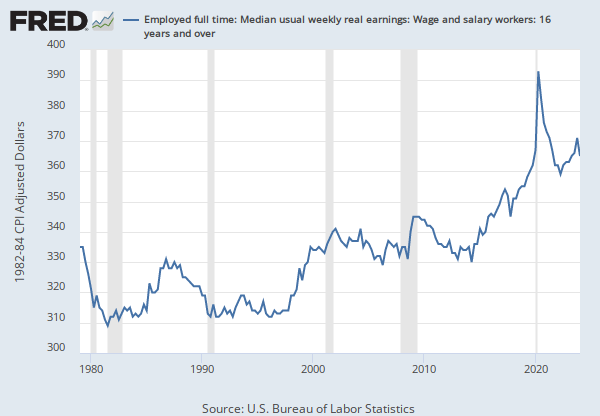Observations
Dec 2025: 7.25 | Dollars per Hour, Not Seasonally Adjusted | Monthly
Updated: Dec 1, 2025 2:43 PM CST
Observations
Dec 2025:
7.25
Updated:
Dec 1, 2025
2:43 PM CST
| Dec 2025: | 7.25 | |
| Nov 2025: | . | |
| Oct 2025: | . | |
| Sep 2025: | . | |
| Aug 2025: | 7.25 |
Units:
Dollars per Hour,
Not Seasonally Adjusted
Frequency:
Monthly
Fullscreen










